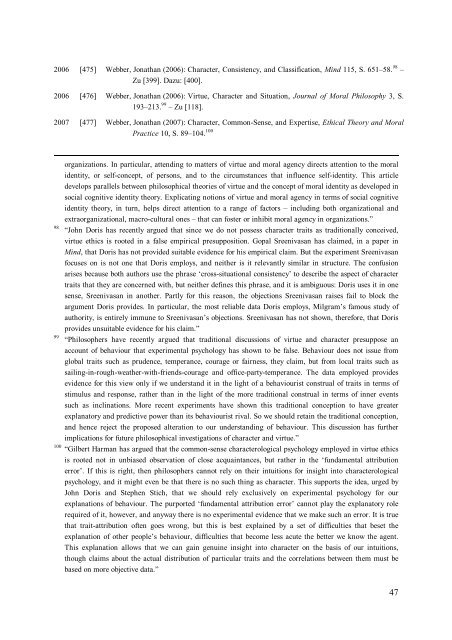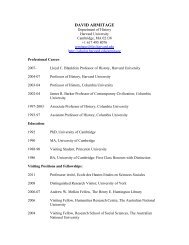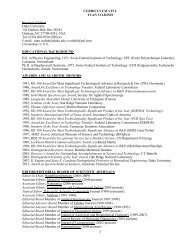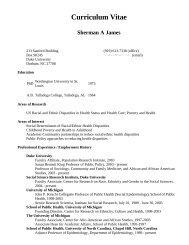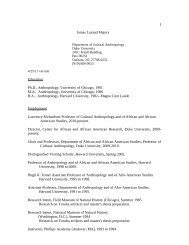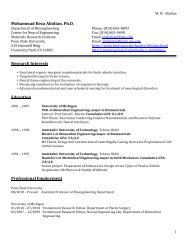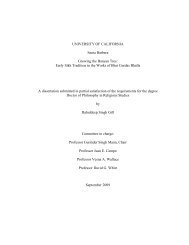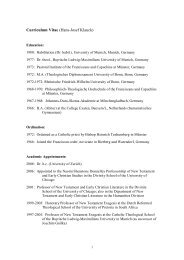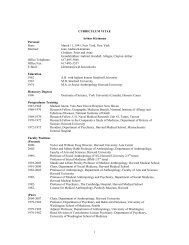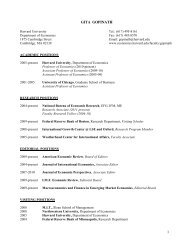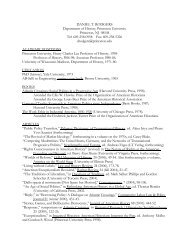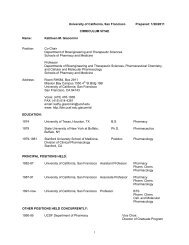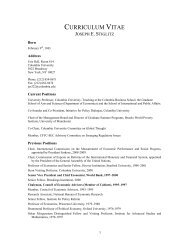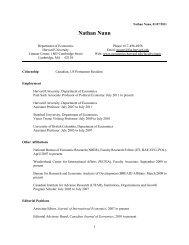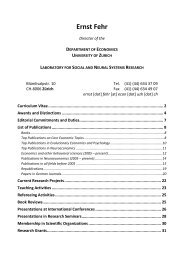Literatur zur Tugendethik Bibliography on Virtue ... - Academic Room
Literatur zur Tugendethik Bibliography on Virtue ... - Academic Room
Literatur zur Tugendethik Bibliography on Virtue ... - Academic Room
- No tags were found...
Create successful ePaper yourself
Turn your PDF publications into a flip-book with our unique Google optimized e-Paper software.
2006 [475] Webber, J<strong>on</strong>athan (2006): Character, C<strong>on</strong>sistency, and Classificati<strong>on</strong>, Mind 115, S. 651–58. 98 –Zu [399]. Dazu: [400].2006 [476] Webber, J<strong>on</strong>athan (2006): <strong>Virtue</strong>, Character and Situati<strong>on</strong>, Journal of Moral Philosophy 3, S.193–213. 99 – Zu [118].2007 [477] Webber, J<strong>on</strong>athan (2007): Character, Comm<strong>on</strong>-Sense, and Expertise, Ethical Theory and MoralPractice 10, S. 89–104. 100organizati<strong>on</strong>s. In particular, attending to matters of virtue and moral agency directs attenti<strong>on</strong> to the moralidentity, or self-c<strong>on</strong>cept, of pers<strong>on</strong>s, and to the circumstances that influence self-identity. This articledevelops parallels between philosophical theories of virtue and the c<strong>on</strong>cept of moral identity as developed insocial cognitive identity theory. Explicating noti<strong>on</strong>s of virtue and moral agency in terms of social cognitiveidentity theory, in turn, helps direct attenti<strong>on</strong> to a range of factors – including both organizati<strong>on</strong>al andextraorganizati<strong>on</strong>al, macro-cultural <strong>on</strong>es – that can foster or inhibit moral agency in organizati<strong>on</strong>s.”98“John Doris has recently argued that since we do not possess character traits as traditi<strong>on</strong>ally c<strong>on</strong>ceived,virtue ethics is rooted in a false empirical presuppositi<strong>on</strong>. Gopal Sreenivasan has claimed, in a paper inMind, that Doris has not provided suitable evidence for his empirical claim. But the experiment Sreenivasanfocuses <strong>on</strong> is not <strong>on</strong>e that Doris employs, and neither is it relevantly similar in structure. The c<strong>on</strong>fusi<strong>on</strong>arises because both authors use the phrase ‘cross-situati<strong>on</strong>al c<strong>on</strong>sistency’ to describe the aspect of charactertraits that they are c<strong>on</strong>cerned with, but neither defines this phrase, and it is ambiguous: Doris uses it in <strong>on</strong>esense, Sreenivasan in another. Partly for this reas<strong>on</strong>, the objecti<strong>on</strong>s Sreenivasan raises fail to block theargument Doris provides. In particular, the most reliable data Doris employs, Milgram’s famous study ofauthority, is entirely immune to Sreenivasan’s objecti<strong>on</strong>s. Sreenivasan has not shown, therefore, that Dorisprovides unsuitable evidence for his claim.”99“Philosophers have recently argued that traditi<strong>on</strong>al discussi<strong>on</strong>s of virtue and character presuppose anaccount of behaviour that experimental psychology has shown to be false. Behaviour does not issue fromglobal traits such as prudence, temperance, courage or fairness, they claim, but from local traits such assailing-in-rough-weather-with-friends-courage and office-party-temperance. The data employed providesevidence for this view <strong>on</strong>ly if we understand it in the light of a behaviourist c<strong>on</strong>strual of traits in terms ofstimulus and resp<strong>on</strong>se, rather than in the light of the more traditi<strong>on</strong>al c<strong>on</strong>strual in terms of inner eventssuch as inclinati<strong>on</strong>s. More recent experiments have shown this traditi<strong>on</strong>al c<strong>on</strong>cepti<strong>on</strong> to have greaterexplanatory and predictive power than its behaviourist rival. So we should retain the traditi<strong>on</strong>al c<strong>on</strong>cepti<strong>on</strong>,and hence reject the proposed alterati<strong>on</strong> to our understanding of behaviour. This discussi<strong>on</strong> has furtherimplicati<strong>on</strong>s for future philosophical investigati<strong>on</strong>s of character and virtue.”100 “Gilbert Harman has argued that the comm<strong>on</strong>-sense characterological psychology employed in virtue ethicsis rooted not in unbiased observati<strong>on</strong> of close acquaintances, but rather in the ‘fundamental attributi<strong>on</strong>error’. If this is right, then philosophers cannot rely <strong>on</strong> their intuiti<strong>on</strong>s for insight into characterologicalpsychology, and it might even be that there is no such thing as character. This supports the idea, urged byJohn Doris and Stephen Stich, that we should rely exclusively <strong>on</strong> experimental psychology for ourexplanati<strong>on</strong>s of behaviour. The purported ‘fundamental attributi<strong>on</strong> error’ cannot play the explanatory rolerequired of it, however, and anyway there is no experimental evidence that we make such an error. It is truethat trait-attributi<strong>on</strong> often goes wr<strong>on</strong>g, but this is best explained by a set of difficulties that beset theexplanati<strong>on</strong> of other people’s behaviour, difficulties that become less acute the better we know the agent.This explanati<strong>on</strong> allows that we can gain genuine insight into character <strong>on</strong> the basis of our intuiti<strong>on</strong>s,though claims about the actual distributi<strong>on</strong> of particular traits and the correlati<strong>on</strong>s between them must bebased <strong>on</strong> more objective data.”47


